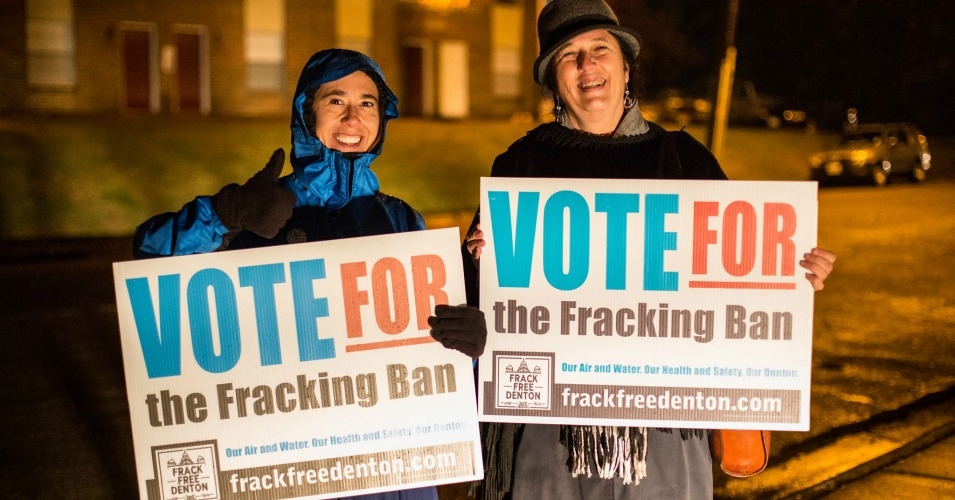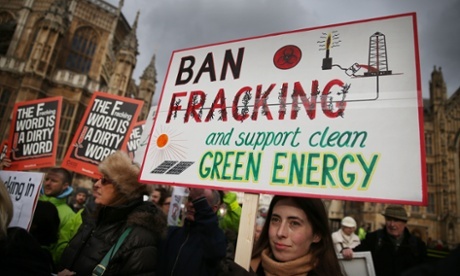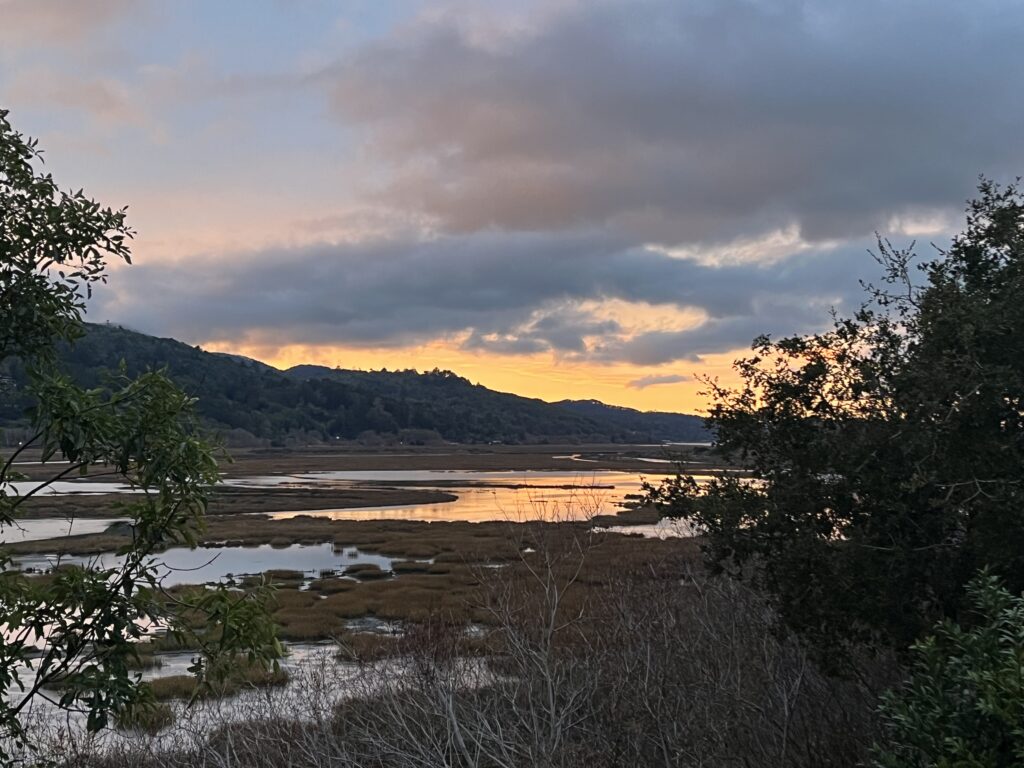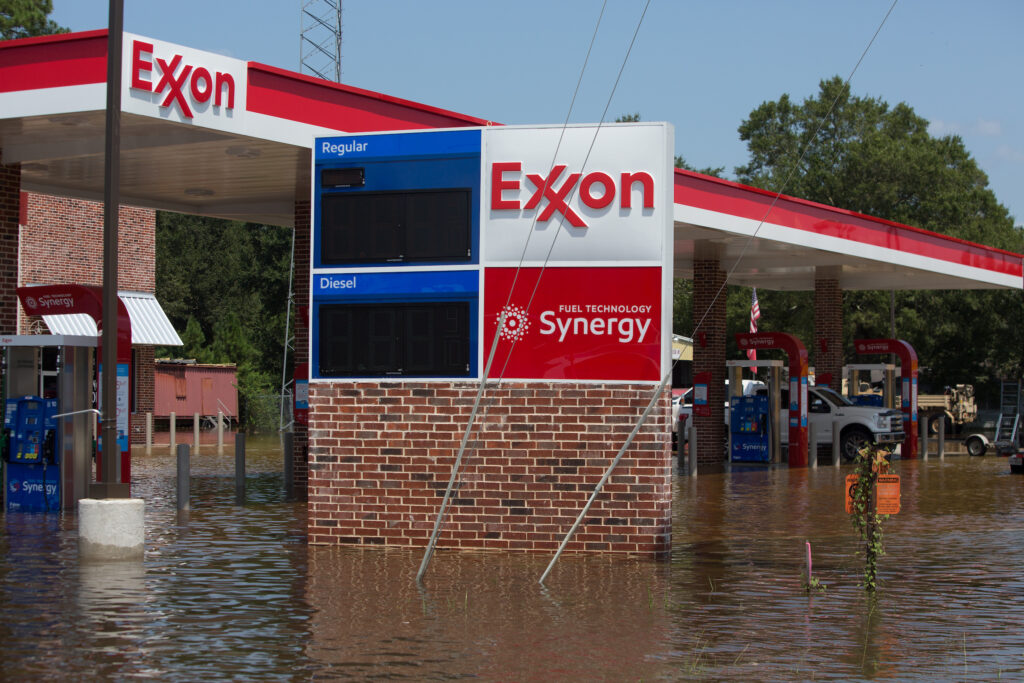This post originally appeared on The Ecologist.
The lesson of fracking in the US and Canada is a simple one, writes Naomi Klein. The fracking industry is vicious, brutal and will stop at nothing to get its way.
British anti-frackers can celebrate this week’s achievements – but the fight ahead will not be an easy one.
On a week-long trip to the UK last fall, I was struck by how quickly the push to open up the country to fracking has been escalating.
Thankfully, activists are mounting a vigorous and creative response, and are more than up to the task of galvanizing the public to put a stop to this mad dash to extract.
A notable victory was scored on Monday when MPs forced amendments through the UK government’s Infrastructure Bill to keep fracking out of national parks, areas of outstanding natural beauty, and places where major aquifers would be placed at risk of pollution.
But still MPs failed to impose the fracking moratorium demanded by the Environmental Audit Committee, and the fracking industry will still enjoy carte blanche to exploit shale gas across most of the country. The fight ahead will not be an easy one.
In rushing to exploit the UK‘s shale gas reserves, the industry has spent millions on public relations and brazenly overridden the democratic will of British citizens by overturning laws that had prevented drilling under homes. The coalition government, meanwhile, has done the sector’s bidding at every turn.
We’ve seen all of this before. Indeed what is happening in the UK is modeled so closely on the US experience that an October 2014 opinion piece in the Wall Street Journal spoke of “plotting an American-style fracking revolution in Britain”.
The frackers’ plan for the UK is rolling out …
So it’s worth playing close attention to how that earlier plot played out, both in the United States and in my own country, Canada. The US is not only where the gas companies honed various technologies used in fracking, but also where they honed their branding-like their pitch, originating in the early 1980s, that natural gas was a ‘bridge’ to a clean energy future.
As opposition has grown, they have cleverly funded studies stamped by big green organizations that understate fracking’s huge greenhouse gas impact; touted over-optimistic production forecasts; and in true shock doctrine style, tried to take advantage of geo-political crisis – like the gas cut-offs in Ukraine – to push through massive export plans that in any other circumstance could never gain legislative or public approval.
And when all else fails, government and industry have turned to criminalizing peaceful activism. They’ve dispatched heavily armed police against Indigenous communities blockading shale gas exploration in New Brunswick, Canada; gagged families impacted by drilling from criticizing the industry for an entire lifetime; and tried to charge as “terrorists” protesters in Oklahoma who unfurled a banner and dropped glitter at an oil and gas company’s office.

Denton, Texas – the birthplace of fracking – voted to ban fracking. Photo: Frack Free Denton via Creative Commons
Yet even with such tactics, communities across North America are in full revolt. Last month came the huge news that New York State would ban fracking, following a steady stream of bans and moratoria passed in local communities, as well as years of sustained pressure from the activists and scientists – like biologist and author Sandra Steingraber, co-founder of New Yorkers Against Fracking – who have tirelessly documented and spread the word about the health and climate impacts.
The New York uprising continues in the Finger Lakes region of the state, where one Texas-based company hopes to create a massive “gas storage and transportation hub” – and where 200 blockaders have been arrested resisting its plans to fill abandoned salt caverns along Seneca Lake with enormous amounts of fracked gas.
A ban has also been passed in Vermont and there are moratoria in parts of California, as well as in the Canadian provinces of Quebec, Nova Scotia, and Newfoundland.
And a month before the New York victory, the Texas town of Denton – the birthplace of the fracking boom and perhaps the most drilled area in the country-voted decisively to ban hydraulic fracturing.
The victory was achieved in a Republican town, in the face of an industry that poured hundreds of thousands into the battle – which was, in the words of a resident, “more like David and Godzilla than David and Goliath.”
Beware – the fracking industry knows no bounds of decency
The story of Denton has much to teach the growing anti-fracking movement in Britain. What it demonstrates is that, left to their own devices, the fossil fuel companies will come after your homes, your churches, your schools, your parks, your university campuses, and your sports stadiums – all of which have had wells drilled on or near them in Denton.
But despite all of the David Cameron government’s fanfare about “going all out for shale”, widespread resistance has already put the UK‘s pro-fracking forces on the defensive.

Protesters gathered outside Parliament on Monday calling for a ban on fracking in the UK. Photo: The Guardian via Creative Commons
A recent Guardian analysis found that only 11 new exploration wells are planned for 2015, with the industry bemoaning the “glacially slow” pace of the shale expansion-to say nothing of possible impacts from the global oil price shock now threatening extreme fossil fuels around the world.
Just last week, ahead of yesterday’s key Parliament vote on fracking legislation, green groups sent Cameron a petition with 267,000 signatures rejecting the dash for gas – something that undoubtedly helped to win key concessions.
Climate change minister Amber Rudd also came under pressure in yesterday’s debate, and was forced to concede that the government would cancel fracking licences if the Committee on Climate Change decided that exploiting shale gas would imperil the UK‘s climate change goals, or explain its failure to do so.
It may seem that frackers in the UK and elsewhere will stop at nothing to have their way. But thanks to the rising global climate movement, the so-called ‘bridge’ is already burning. And it’s long past time to choose a different path.
Naomi Klein is a Canadian author and social activist known for her political analyses and criticism of corporate globalization and of corporate capitalism, and her recent book on climate change, ‘This Changes Everything‘.
This article was originally published on This Changes Everything, and has been updated by The Ecologist.
Photo: nicolas haeringer via flickr
Subscribe to our newsletter
Stay up to date with DeSmog news and alerts







